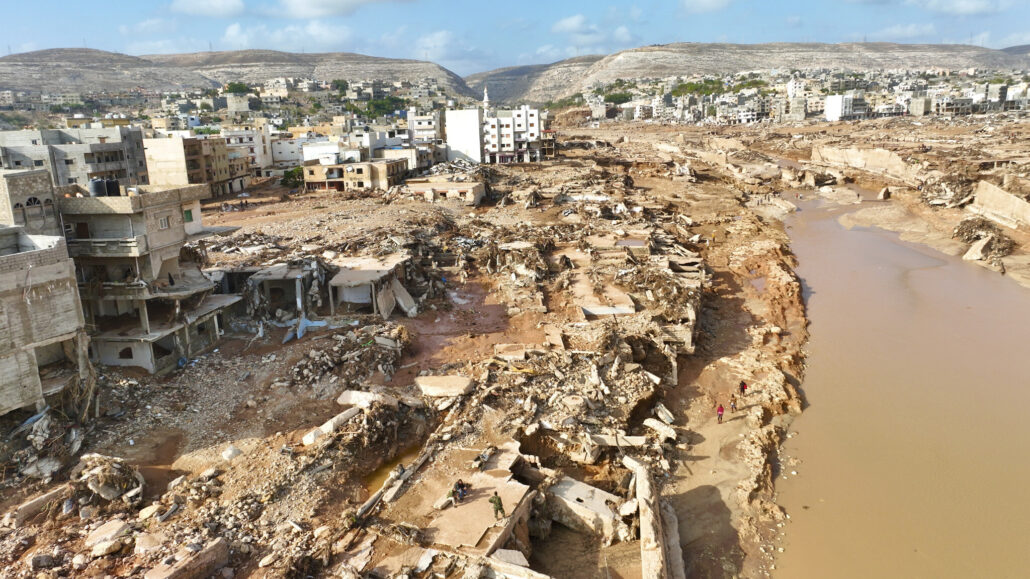
The death toll from catastrophic flooding in Libya’s eastern city of Derna has climbed to 11,300, the United Nations said in an update on Saturday, citing the Libyan Red Crescent, while as 10,100 people are still missing in the devastated city.
Elsewhere in eastern Libya outside Derna, the flooding took an additional 170 lives, the UN’s Office for the Coordination of Humanitarian Affairs said, using Red Crescent figures stated.
“These figures are expected to rise as search-and-rescue crews work tirelessly to find survivors,” the UN update said. Nearly a week after Storm Daniel hit northeastern Libya, “the humanitarian situation remains particularly grim in Derna,” the update said.
Severe drinking water problems have gripped the city, and at least 55 children were poisoned from drinking polluted water, it said.
In surrounding areas, most of which have seen years of armed conflict, the UN warned of the dangers of landmines shifting from floodwaters, threatening civilians who enter on foot.
The catastrophic flooding, which occurred on a fateful Sunday night, swept away entire families and laid bare the vulnerabilities of the oil-rich nation, which has grappled with conflict since the 2011 uprising that led to the overthrow of the long-ruling dictator, Muammar Gaddafi.
One survivor, who was injured during the ordeal and managed to scramble to safety with his mother, recounted the harrowing experience. “Within seconds, the water level suddenly rose,” he said.
“The water was rising with us until we got to the fourth floor. We could hear screams. From the window, I saw cars and bodies being carried away by the water. It lasted an hour or an hour and a half – but for us, it felt like a year.”
Derna has commenced the heartbreaking task of burying its dead, primarily in mass graves, as authorities grapple with the overwhelming scale of the disaster.
More than 3,000 bodies had been interred by Thursday morning, while another 2,000 were still awaiting processing. Many of the deceased were laid to rest in mass graves outside Derna, while others were transferred to nearby towns and cities.
Yann Fridez, the head of the Libya delegation of the International Committee of the Red Cross (ICRC), described the disaster as “violent and brutal,” with a massive wave reaching 7 meters (23 feet) in height devastating buildings and infrastructure. ICRC is providing crucial support by distributing 6,000 body bags to ensure dignified treatment of the deceased.
The floods were triggered by the breach of two dams during heavy rains, has surged to a devastating 11,300, according to the Libyan Red Crescent, which has raised questions about the state of infrastructure and maintenance in Derna.
According to local authorities, the dams had not been properly maintained since 2002.
Anas El Gomati, founder and director of the Sadeq Institute, placed blame on eastern authorities for neglecting critical infrastructure and maintenance, citing corruption and financial mismanagement as underlying causes.




